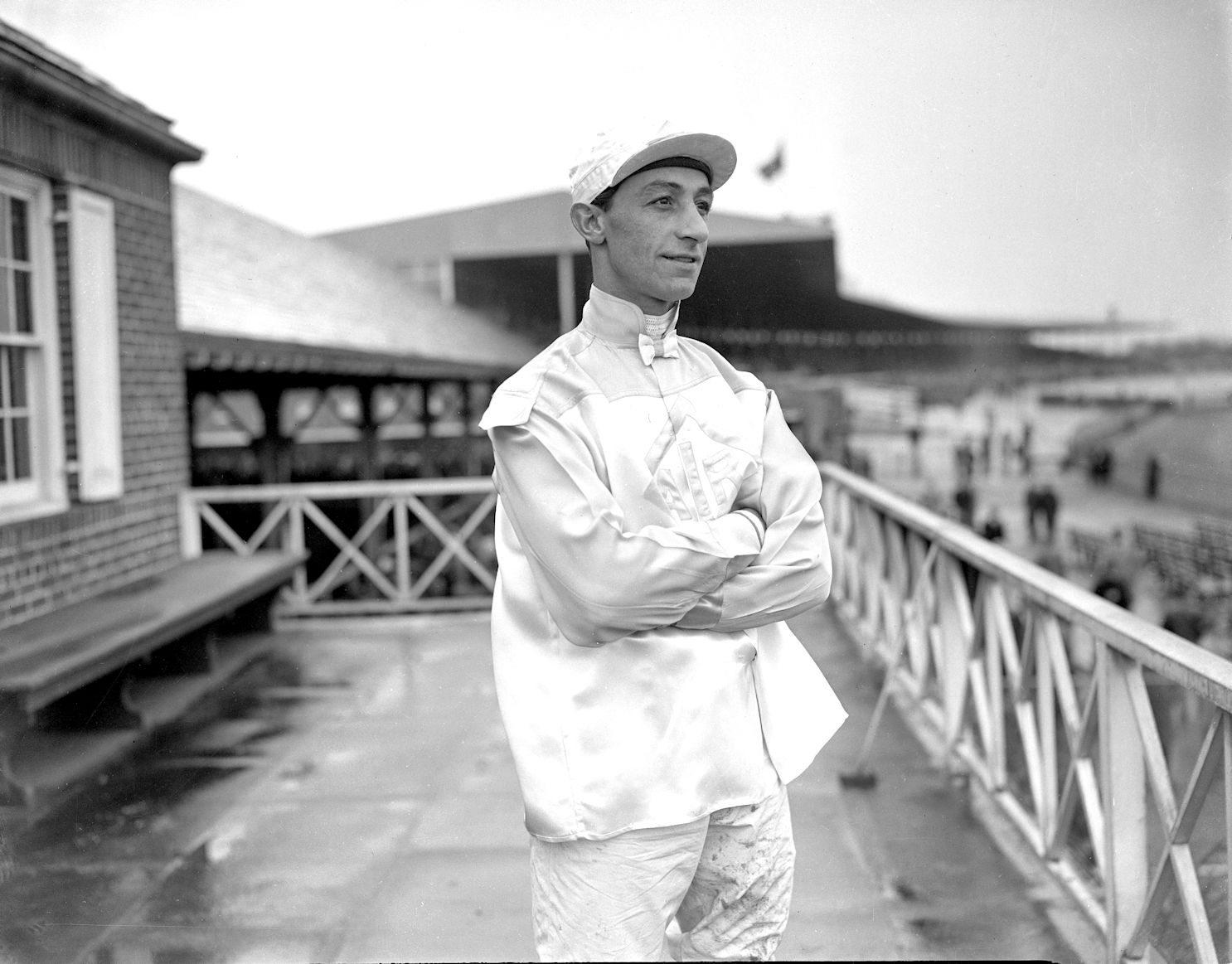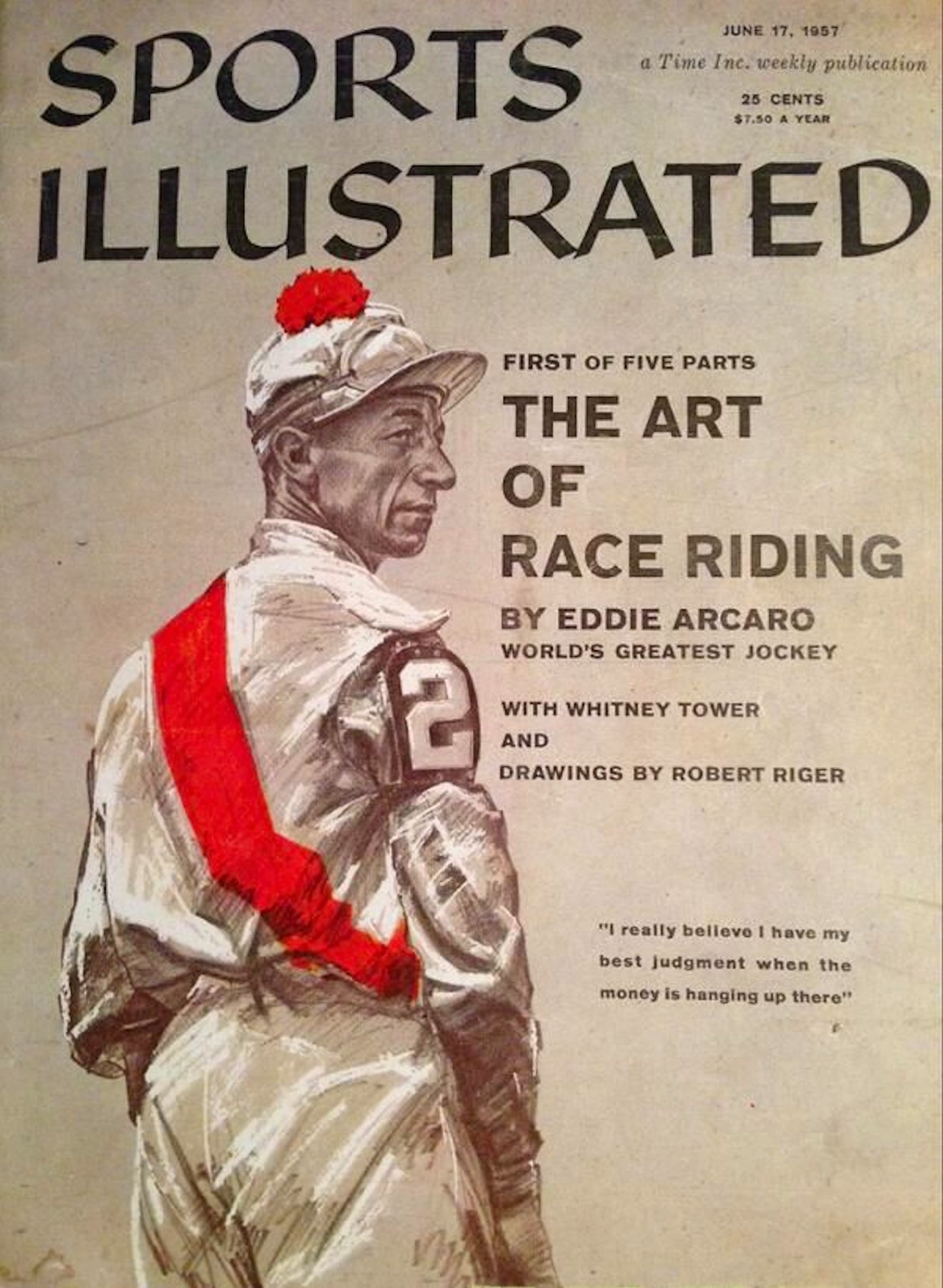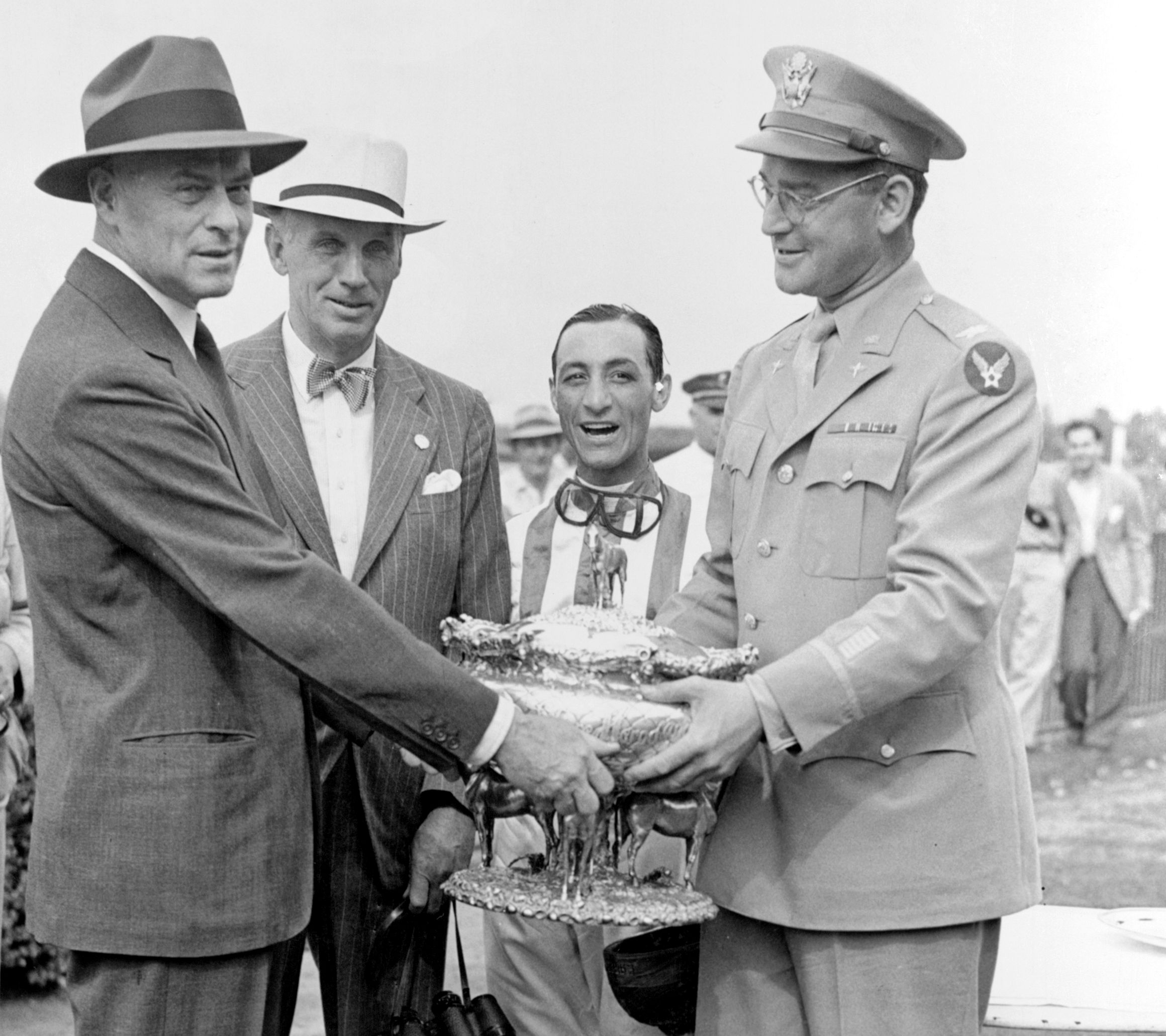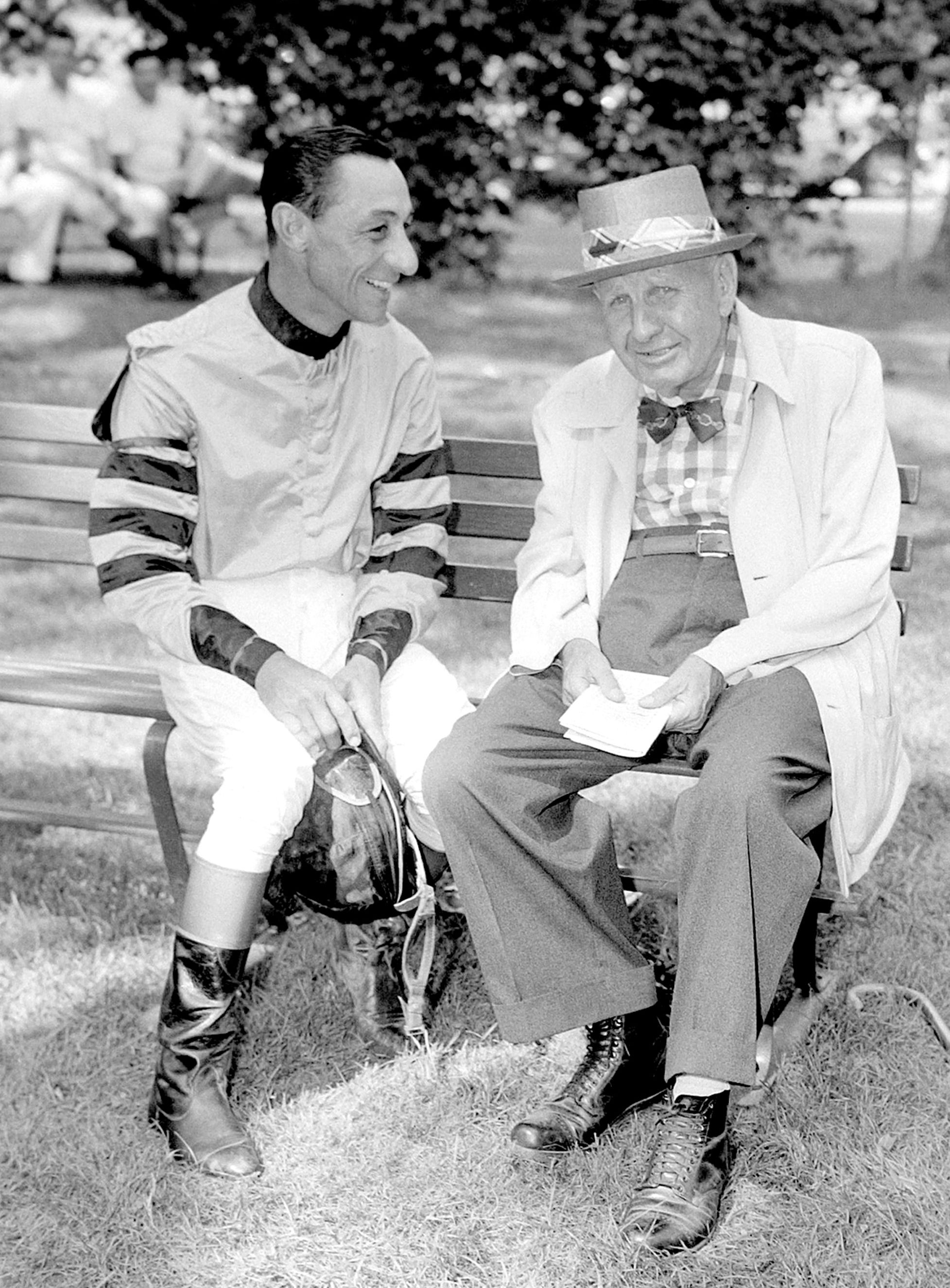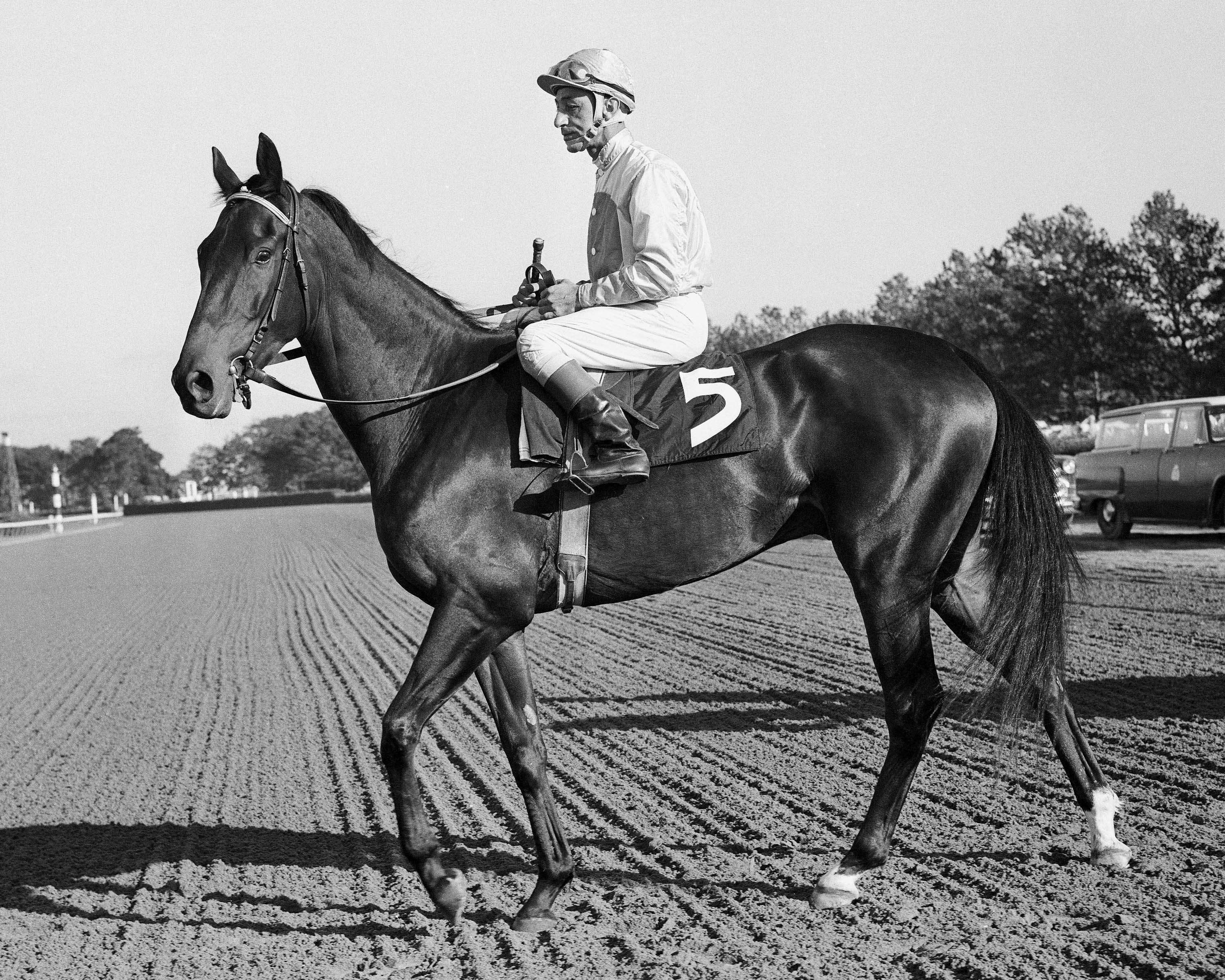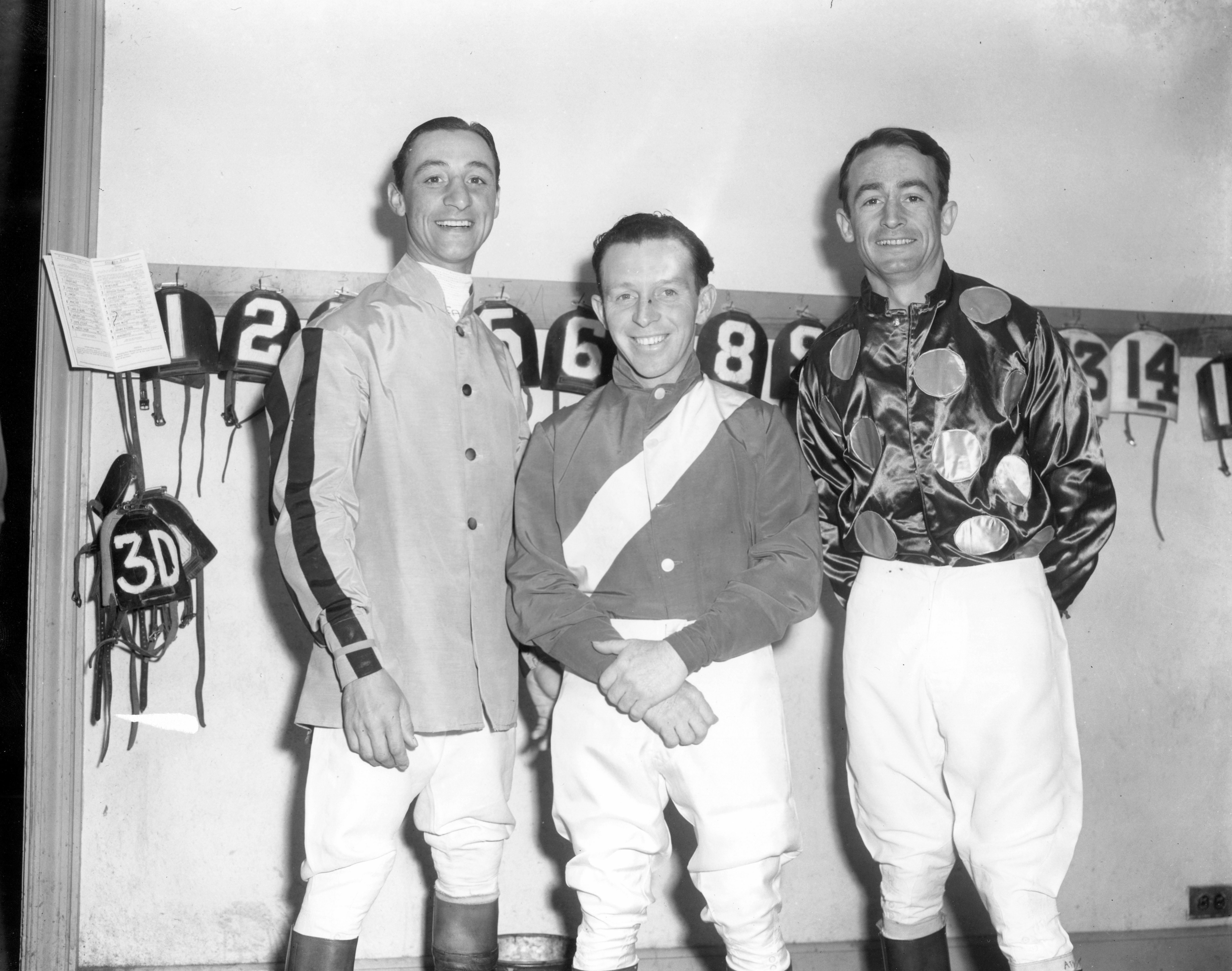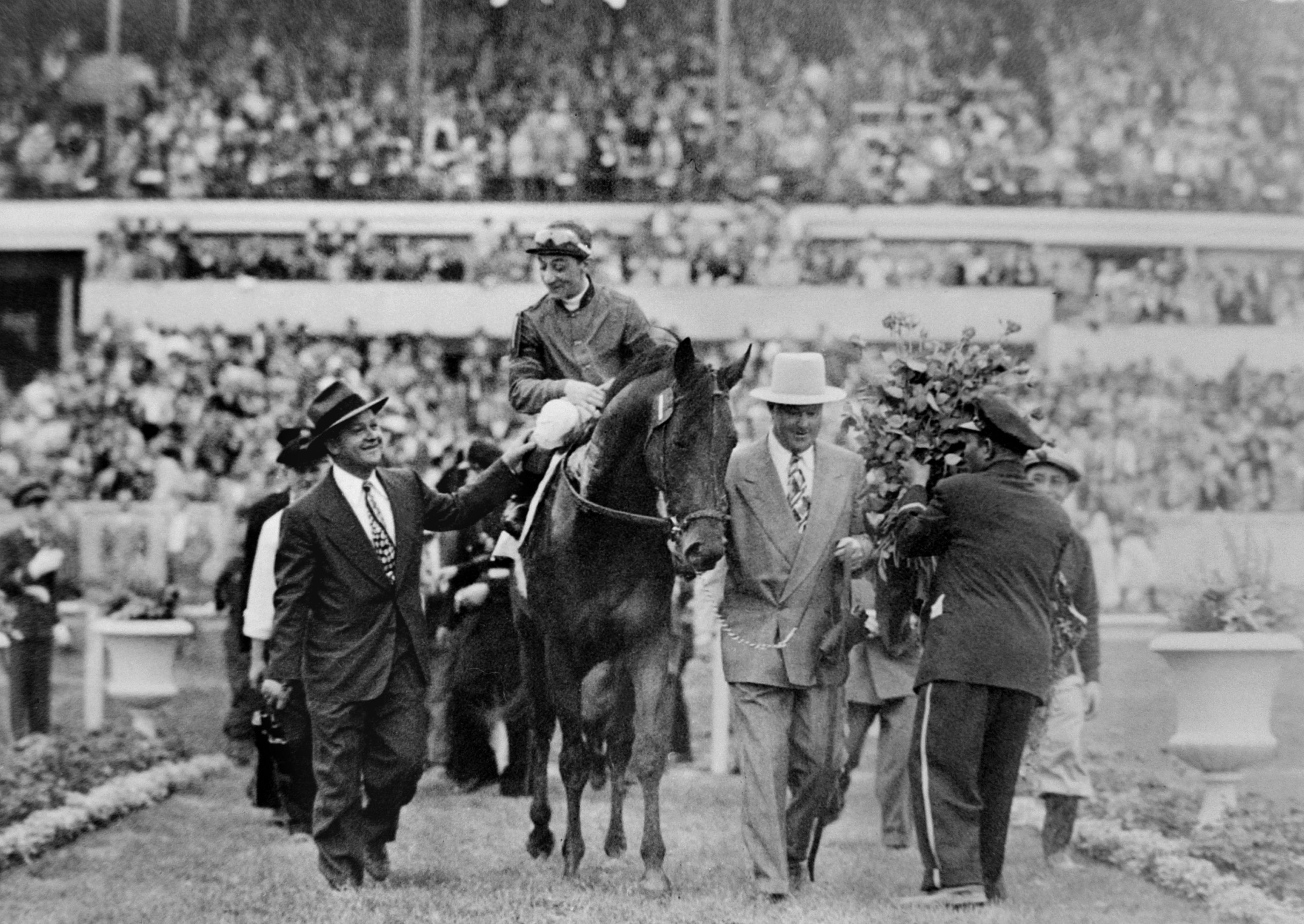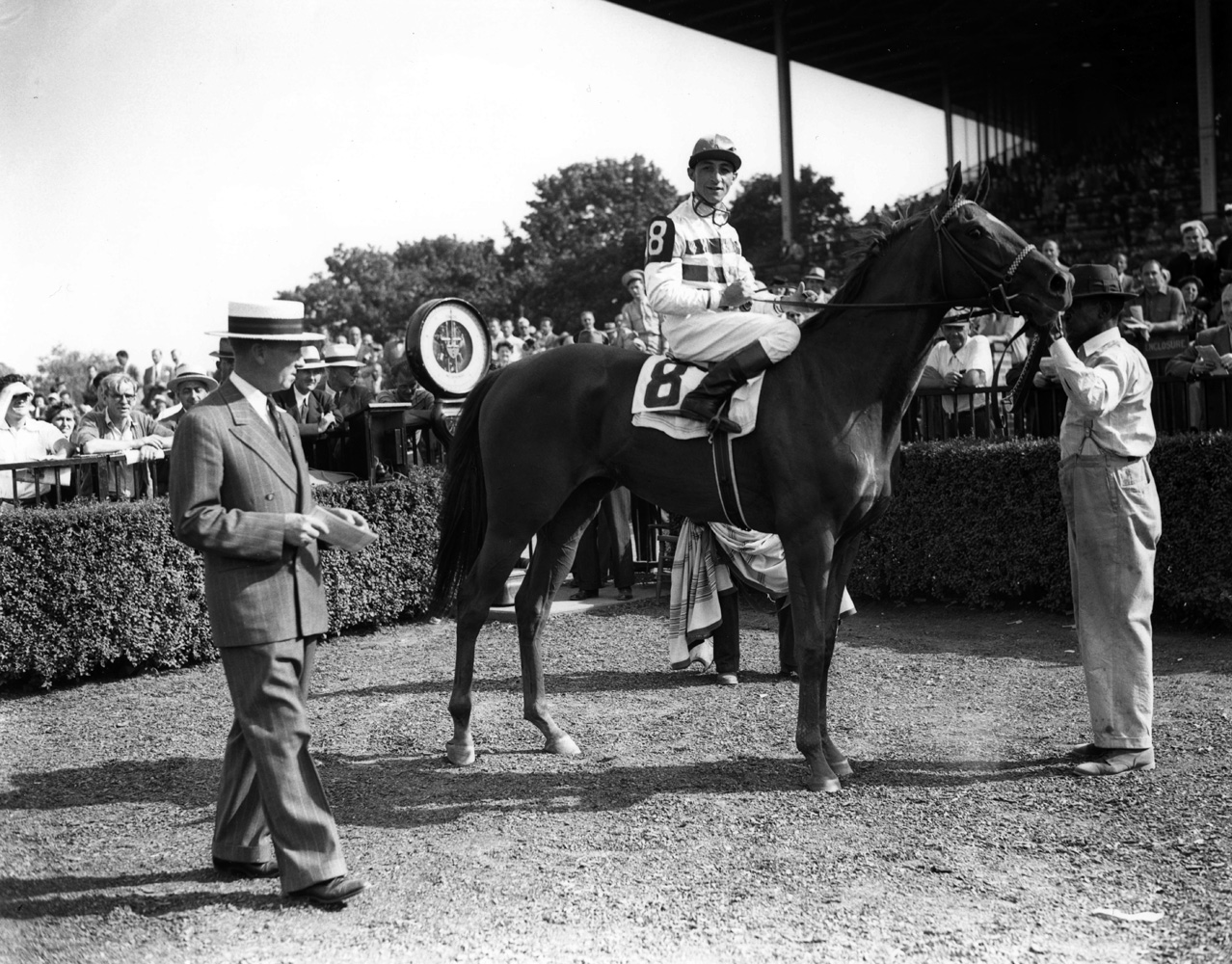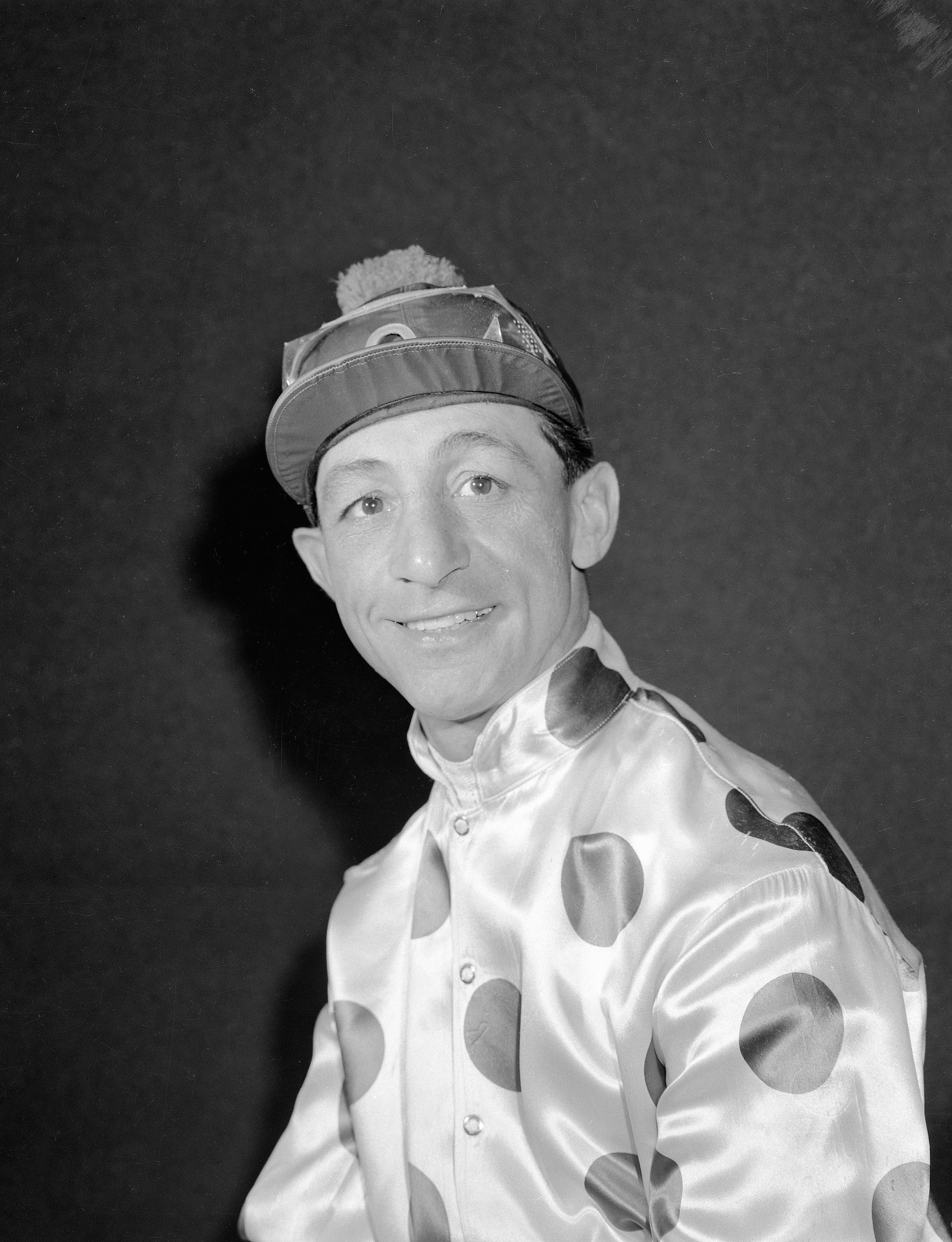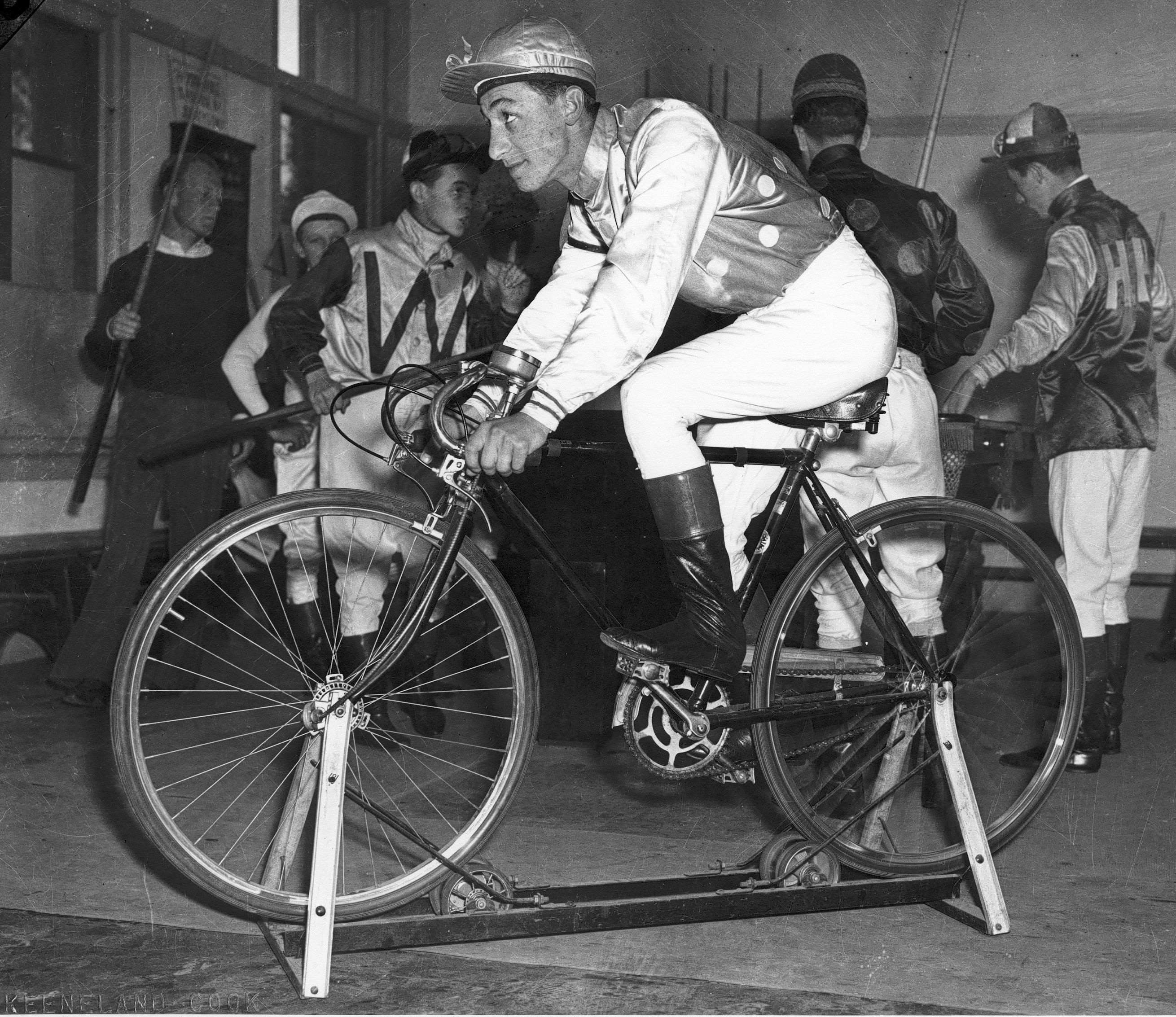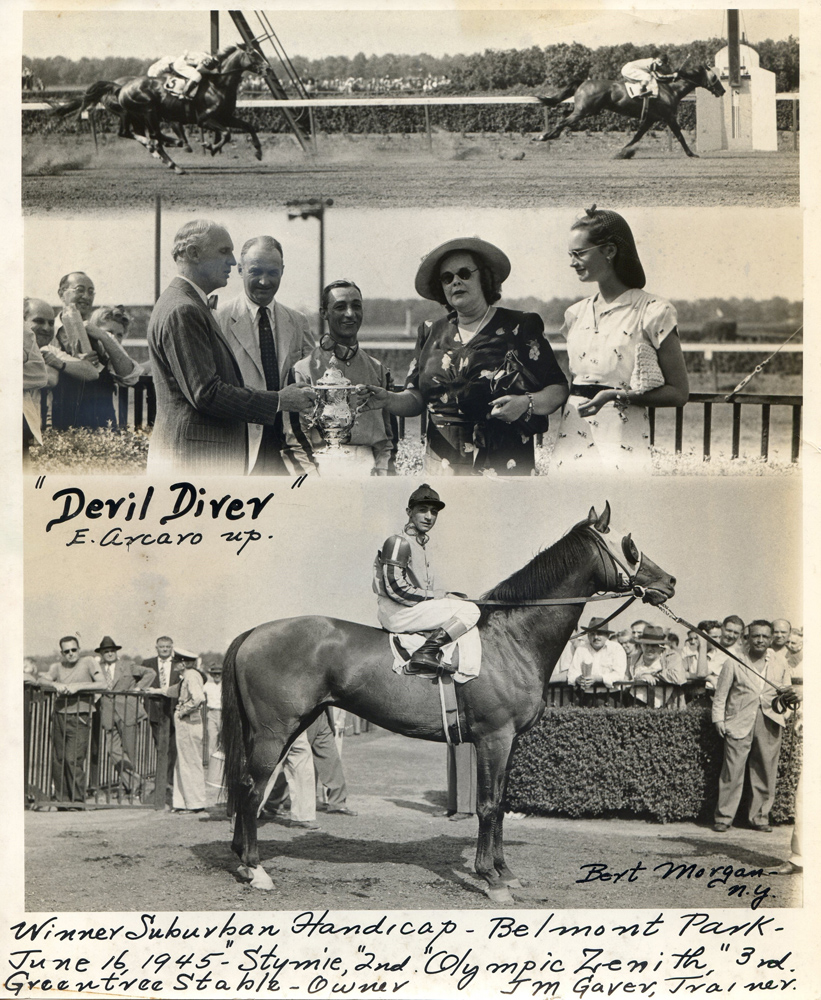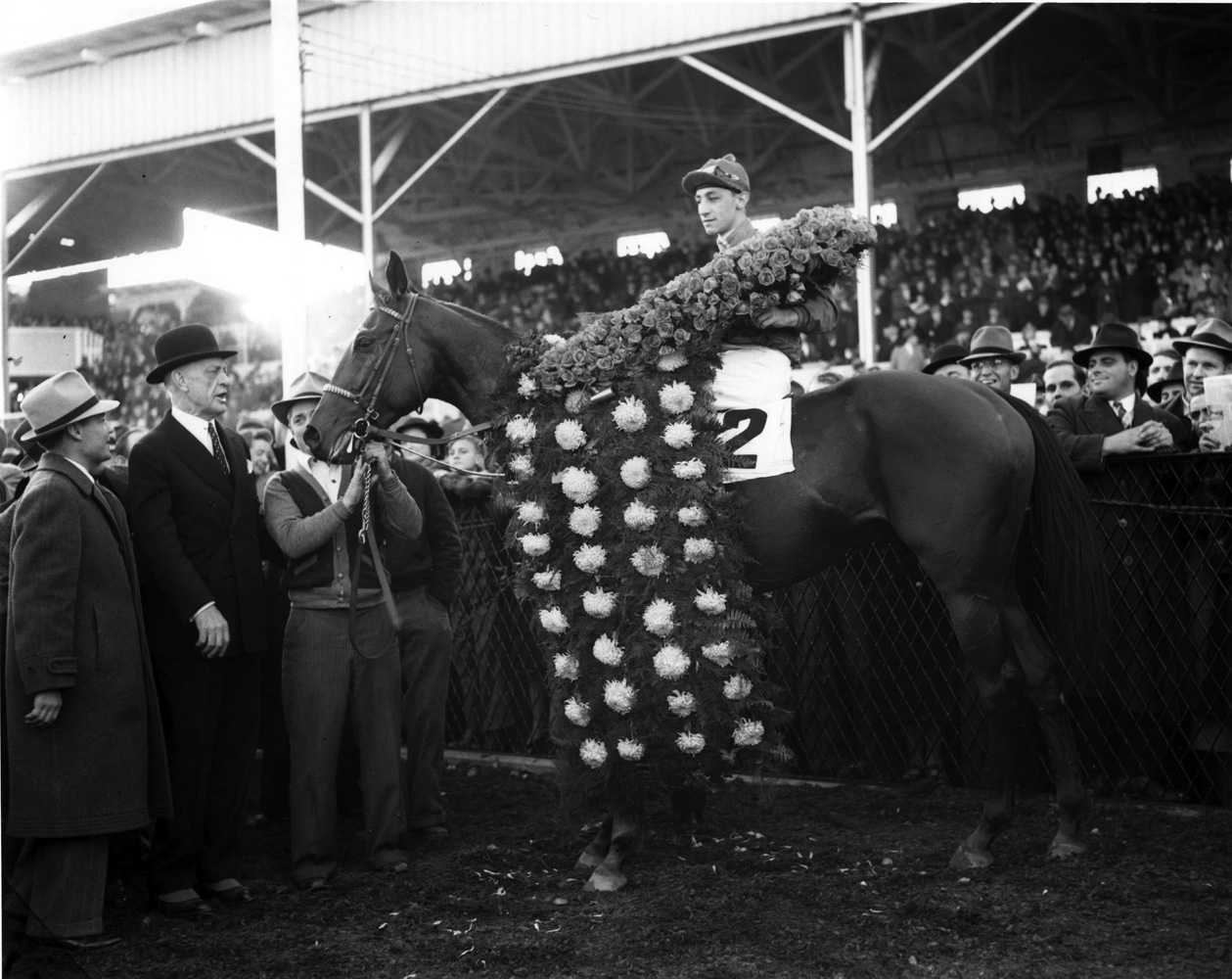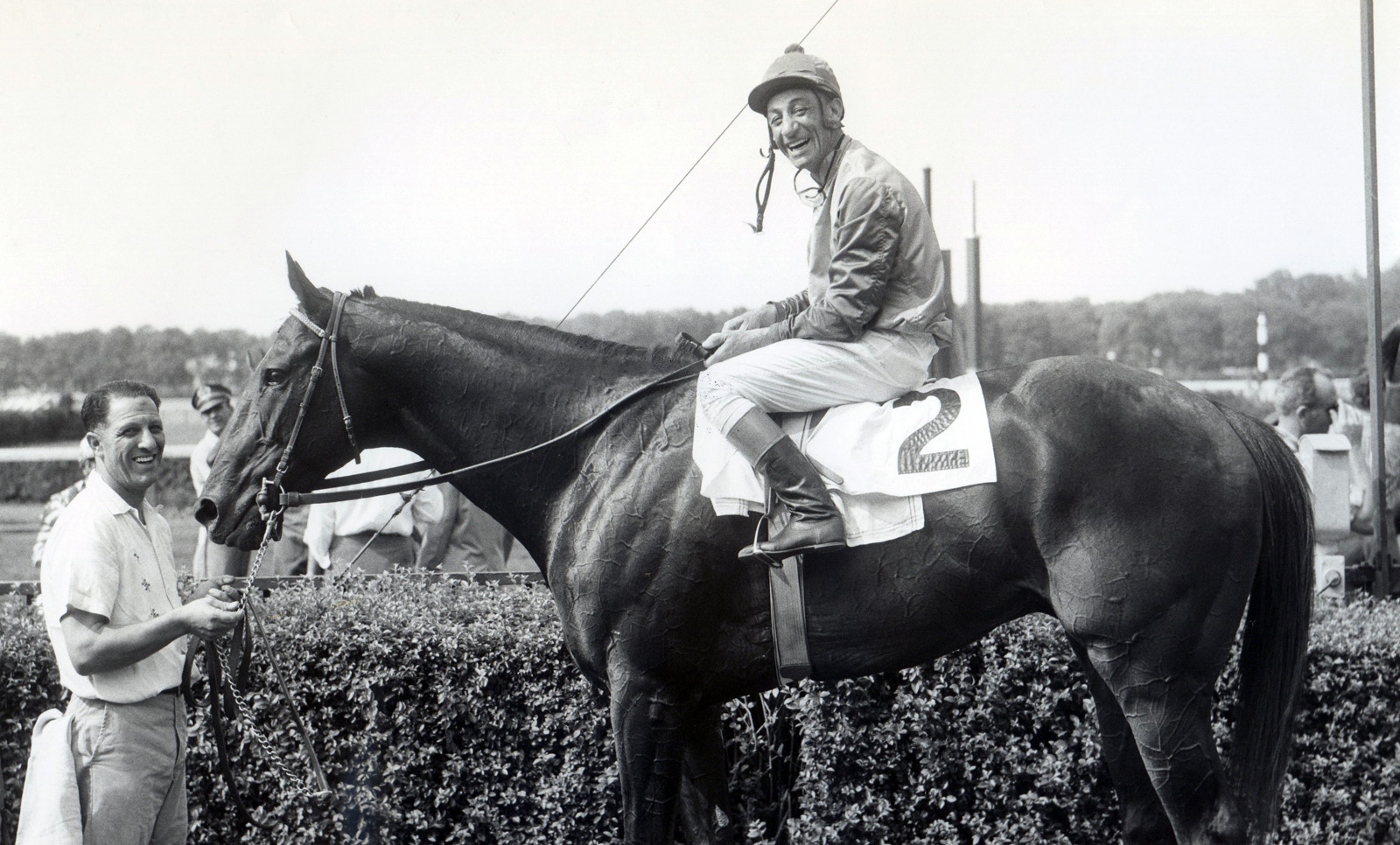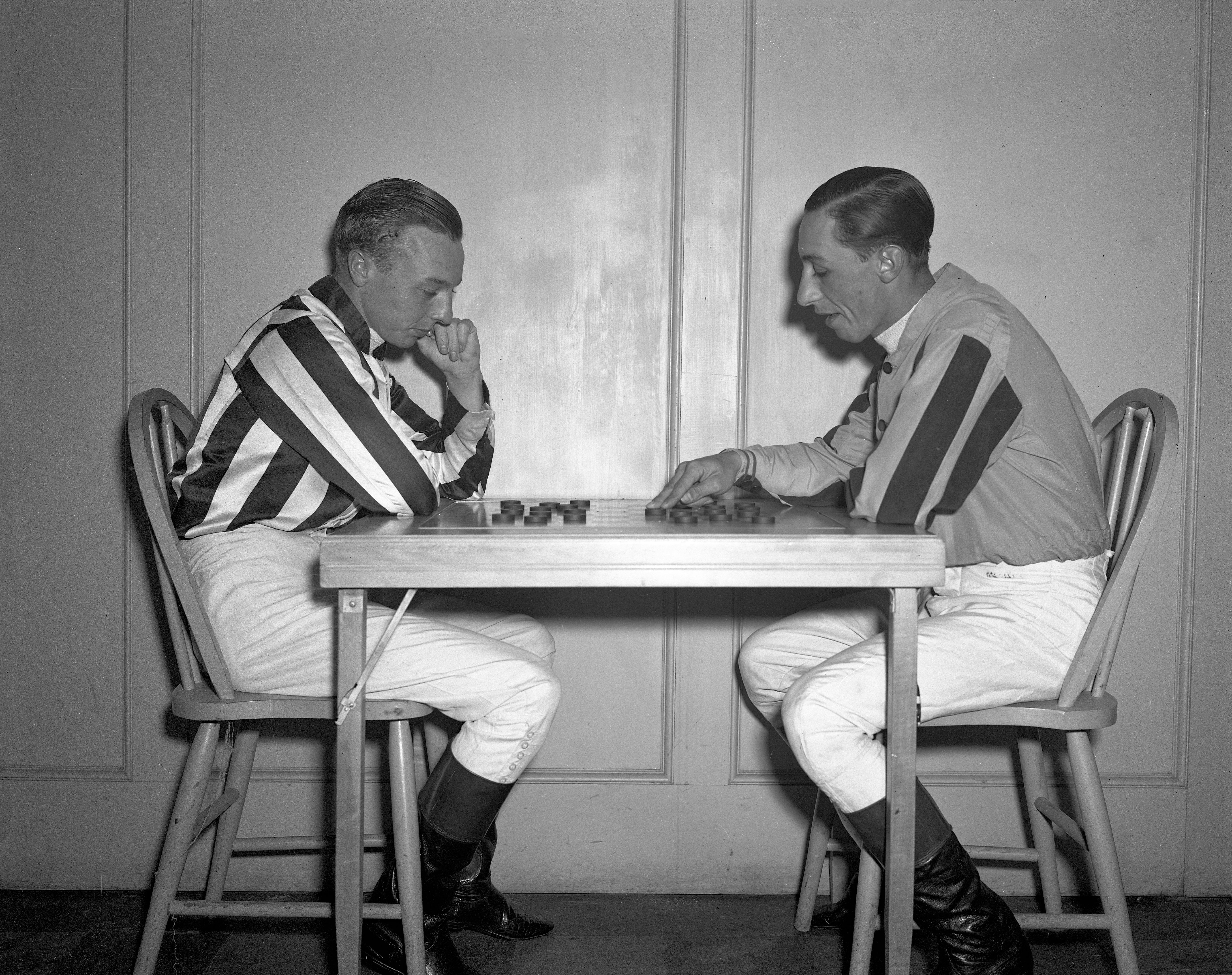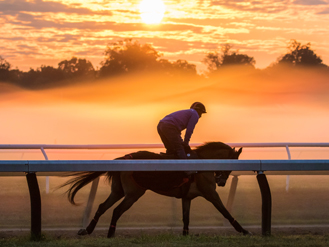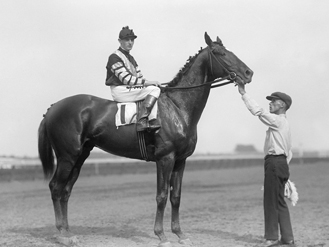G. Edward Arcaro
The statistics and the rankings, as impressive as they are — 4,779 wins, including a record 17 in the Triple Crown series, and six times atop the North American jockey standings in earnings — only scratch the surface of Eddie Arcaro’s greatness and his remarkable journey in the sport of thoroughbred racing.
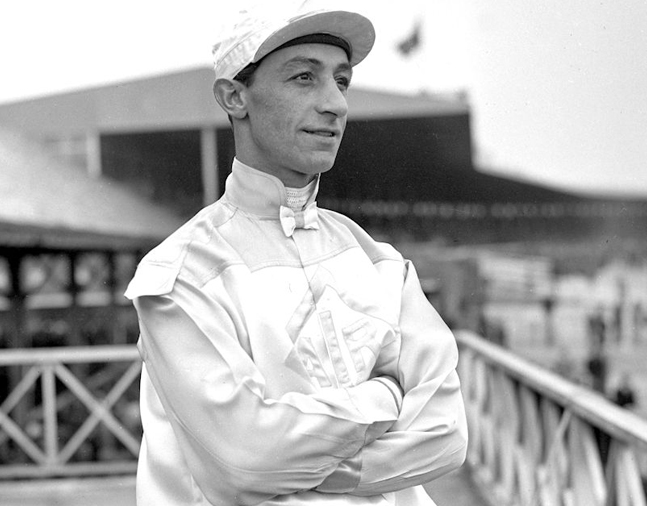
1958
Feb. 19, 1916, Cincinnati, Ohio
Nov. 14, 1997, Miami, Florida
1931-1962
4,779
$30,039,543
Racing Record
19.83
Win %
Biography
The statistics and the rankings, as impressive as they are — 4,779 wins, including a record 17 in the Triple Crown series, and six times atop the North American jockey standings in earnings — only scratch the surface of Eddie Arcaro’s greatness and his remarkable journey in the sport of thoroughbred racing.
The incomparable accomplishments with the legendary horses he rode — Hall of Famers Citation, Whirlaway, Kelso, Nashua, Bold Ruler, Sword Dancer, Hill Price, and Real Delight, among numerous other champions and standouts — still only tell part of Arcaro’s extraordinary story.
Perhaps the most essential aspect of the Arcaro narrative was his mentality. Cordial and charismatic off the track, Arcaro was a demon in the irons, arguably the fiercest competitor racing has ever known. When appearing before chief steward Marshall Cassidy to answer for his actions in knocking fellow rider Vincent Nodarse off his mount in the 1942 Cowdin Stakes, almost pitching him into the Aqueduct infield, Arcaro responded without hesitation, “I was trying to kill the son of a bitch.”
Arcaro was hammered with a year’s suspension for the transgression, but the time on the sidelines did little to curtail his aggressiveness upon his return.
“My trouble had risen from a desire to win; my honesty had not been impugned,” Arcaro wrote in his autobiography, “I Ride to Win!”
“They (Greentree owner Helen Hay Whitney and trainer John Gaver) were eager to have me continue my association with them. And so I continued with Greentree at half-salary, thus becoming America’s highest-priced exercise boy. I spent the winter with the Greentree horses at Aiken, South Carolina, and improved my golf game.”
The suspension was lifted after Mrs. Whitney wrote to William Woodward, Sr., president of The Jockey Club, saying she would like to see Arcaro ride again before she died. Woodward complied and Arcaro returned from exile and was back in the saddle.
By the early 1940s, Arcaro had become the standard by which all other riders were measured, as evidenced by his nickname, “The Master.”
“Eddie and I were pals, but all friendship ended when the gate opened,” jockey Sam Renick said. “I would rather beat Arcaro than any other jockey because when you won a race against him you're beating the best.”
Arcaro was born in 1916 in Cincinnati, Ohio, and grew up across the Ohio River in Newport, Kentucky. He was 16 when he rode his first winner, Eagle Bird, in 1932 at Agua Caliente in Tijuana, Mexico. Arcaro became a household name when he won his first Kentucky Derby aboard Lawrin in 1938 at the age of 22. He also won the Derby in 1941 (Whirlaway), 1945 (Hoop Jr.), 1948 (Citation), and 1952 (Hill Gail), becoming the first rider to win the Run for the Roses five times.
The Triple Crown races were perennially showcase events for Arcaro. He swept the series twice in the 1940s for Calumet Farm with Whirlaway and Citation. He won the Preakness a record six times and the Belmont a record-tying six times (shared with 19th century legend James McLaughlin). Arcaro dominated the biggest races, winning multiple editions of the Jockey Club Gold Cup (10), Wood Memorial (nine), Suburban Handicap (eight), Saratoga Special (seven), Futurity Stakes (six), Brooklyn Handicap (six), Jerome Stakes (six), Withers Stakes (six), Acorn Stakes (five), American Derby (five), Beldame Stakes (four), Champagne Stakes (four), Hopeful Stakes (four), Kentucky Oaks (four), Manhattan Handicap (four), Metropolitan Handicap (four), Travers Stakes (four) and Woodward Stakes (four), among many others.
Arcaro considered Citation the best horse he ever rode.
“Almost every nice horse has one good move in them; the really good ones, you can move with them twice,” Arcaro said. “With Citation, you could call on him any time in a race. He had about eight moves in him.”
Elite strength and uncommon intelligence were two of Arcaro’s finest attributes. He wasted little motion in the saddle and was a marvel with the whip, able to switch it from side to side with rare precision.
In a five-part series for Sports Illustrated in 1957, Arcaro described the importance of instincts and split-second decisiveness. He said: “I believe that 80 percent of the time the outcome of a race depends on the individual thinking on the part of the jockey on the best horse. Most jocks and other racetrackers can go back over and over again to races that have meant something to them and see plain as day where one little thing done wrong or done right decided the final result. It’s plain to me that the jock with the best judgment — and this includes the ability to notice your opposition’s errors and take advantage of them — can often win even though he may not be on the best horse.”
Arcaro was North America’s leading rider in earnings in 1940, 1942, 1948, 1950, 1952, and 1958 and topped the list by stakes earnings in 1940, 1941, 1946, and 1948, and each year from 1950 through 1955. He owned the record with 549 stakes races and was the all-time earnings leader at $30,049,313 when he retired at the age of 46 in the spring of 1962. Arcaro was inducted into the Hall of Fame while he was still active in 1958.
“When I was growing up in Puerto Rico, my father would give me movies and pictures and tell me that if I wanted to be a jockey that I had to learn to ride like Eddie Arcaro,” said Hall of Fame jockey Angel Cordero, Jr. “God only makes so many people like Muhammad Ali, Michael Jordan, and Babe Ruth. Eddie Arcaro is right there with those people. He was the best ever.”
Following his riding career, Arcaro spent some time as a television commentator and opened a popular restaurant in Beverly Hills, California. He invested his money well and had significant oil holdings. Arcaro died Nov. 14, 1997, at the age of 81.
Daily Racing Form’s Joe Hirsch, the dean of American turf writers, eloquently summarized Arcaro’s legacy: “Many people believe he was the best there ever was. He loved people, all kinds of people, and it was very apparent. Even in crowds, with a smile and a one-liner he could make friends with total strangers. All his life, people responded to him, and it seems fair to say that during much of the 20th century he was the most visible and recognizable figure in American racing. There have been a lot of good riders and good intelligent riders, but few were able to successfully combine the two like Eddie did. Add his gift of initiative and daring, and you have a formidable mix. Racing people will celebrate his name and career as long as the sport continues.”
Achievements
North America's leading rider in earnings — 1940, 1942, 1948, 1950, 1952, 1958
Triple Crown Highlights
Won the 1938 Kentucky Derby — Lawrin
Won the 1941 Kentucky Derby — Whirlaway
Won the 1945 Kentucky Derby — Hoop Jr.
Won the 1948 Kentucky Derby — Citation
Won the 1952 Kentucky Derby — Hill Gail
Won the 1941 Preakness Stakes — Whirlaway
Won the 1948 Preakness Stakes — Citation
Won the 1950 Preakness Stakes — Hill Prince
Won the 1951 Preakness Stakes — Bold
Won the 1955 Preakness Stakes — Nashua
Won the 1957 Preakness Stakes — Bold Ruler
Won the 1941 Belmont Stakes — Whirlaway
Won the 1942 Belmont Stakes — Shut Out
Won the 1945 Belmont Stakes — Pavot
Won the 1948 Belmont Stakes — Whirlaway
Won the 1952 Belmont Stakes — One Count
Won the 1955 Belmont Stakes — Nashua
Other Highlights
Won the Jockey Club Gold Cup — 1935, 1946, 1948, 1949, 1954, 1955, 1956, 1959, 1960, 1961
Won the Wood Memorial Stakes — 1944, 1945, 1947, 1947*, 1949, 1950, 1956, 1957, 1958 (*won two divisions)
Won the Suburban Handicap — 1945, 1947, 1949, 1956, 1957, 1958, 1960, 1961
Won the Saratoga Special — 1935, 1947, 1950, 1954, 1955, 1958, 1959
Won the Brooklyn Handicap — 1944, 1947, 1954, 1955, 1956, 1961
Won the Futurity Stakes — 1940, 1946, 1950, 1954, 1956, 1959
Won the Jerome Stakes — 1946, 1950, 1955, 1957, 1958, 1960
Won the Withers Stakes — 1940, 1946, 1949, 1950, 1951, 1955
Media
